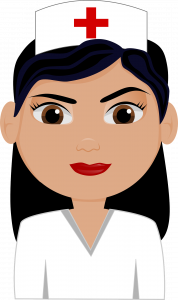Introduction
Jessica Hertig

Opening Doors to Your Future: A Handbook for RN to BSN Students serves as a bridge to practice guide for registered nurses (RNs) as they attain their Bachelor of Science in Nursing (BSN) degrees. The book progresses through topics and situations specific to BSN roles and responsibilities while placing key ideas in context with the use of an unfolding case study.
Central topics include professional development, leadership & management, the business of healthcare, and tools to create an action plan to pursue personal and professional goals.
The authors created this handbook to provide students with an opportunity to become aware of opportunities and roles they are now qualified for, discover ongoing professional development options, and to reflect on their future plans and goals. This resource will build on a strong curriculum focused on baccalaureate essentials while helping to build a more professionally minded nursing workforce.
Meet Roxanne Estrada
Meet Roxanne Estrada, ADN RN
Roxanne has worked at a local long-term care facility for 10 years. At her leader’s request she has taken on more responsibility and is now being mandated to complete her bachelor’s degree. Roxanne likes her job and wants to continue with the organization, but she doesn’t quite understand how obtaining her BSN degree will benefit her or her patients.
Throughout this handbook readers will see various scenarios specific to the content that applies to Roxanne. These scenarios are intended to be a demonstration of how the topics/content apply to real-life BSN RNs.
Handbook Learning Outcomes
- Provide students studying for their BSN completion with the knowledge of the responsibilities, opportunities, and commitment to lifelong learning that come with the BSN degree.
- Showcase how the leadership concepts, collaborative strategies, and added technology skills obtained can be applied to the process of nursing care delivery and their future career goals.
- Demonstrate how the quality improvement, safety management principles, and elements of nursing research learned in the program enhance their professional options.
- Discuss how scientific evidence with clinical judgment and patient preference is utilized to improve patient outcomes.
- Provide rationale on how knowledge of evidence-based, preventive health care to families, communities, and vulnerable populations can open careers in community-based settings.
- Describe the ethical, legal, political, and financial influences on the delivery of patient care and the profession of nursing.
